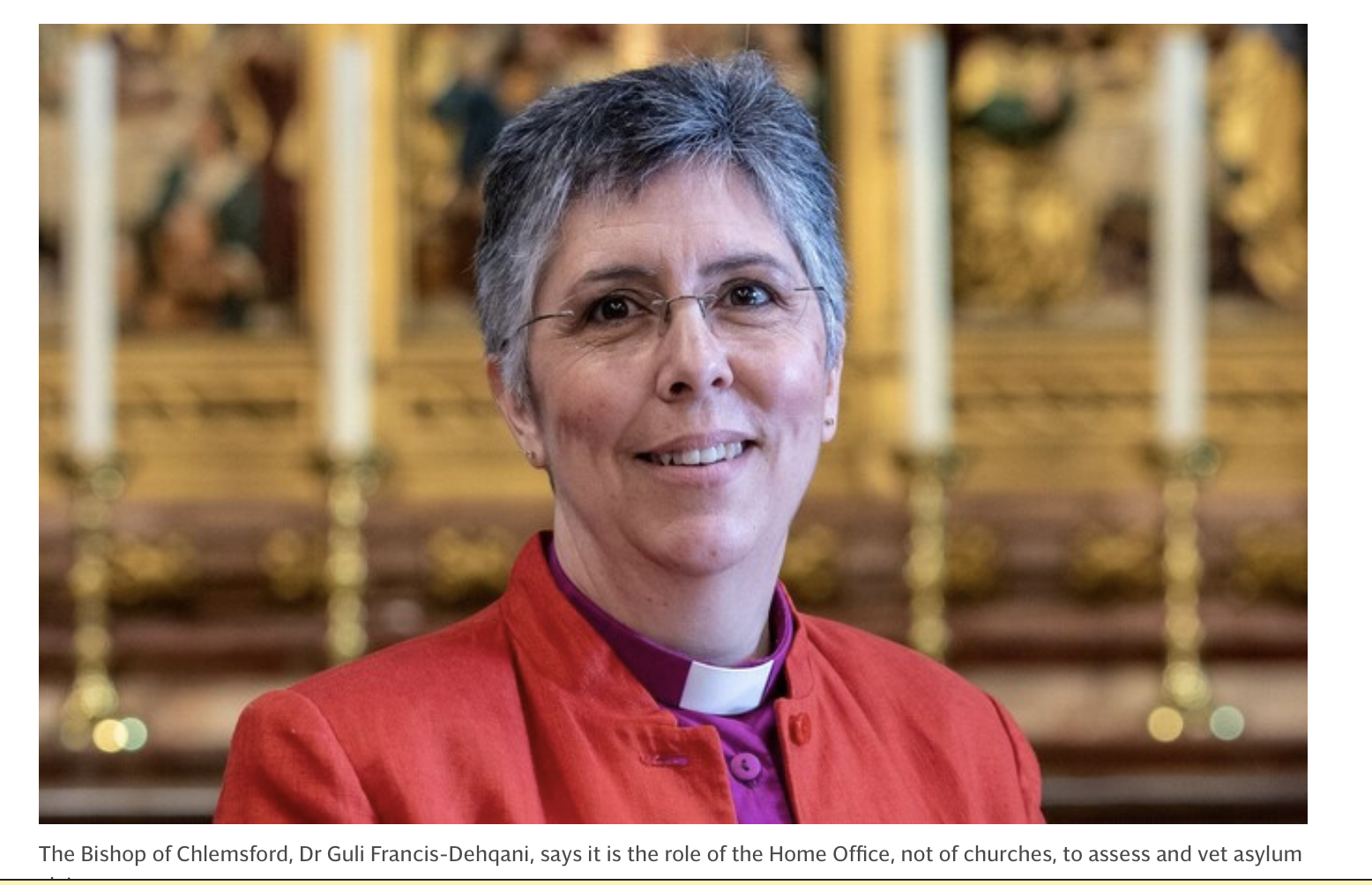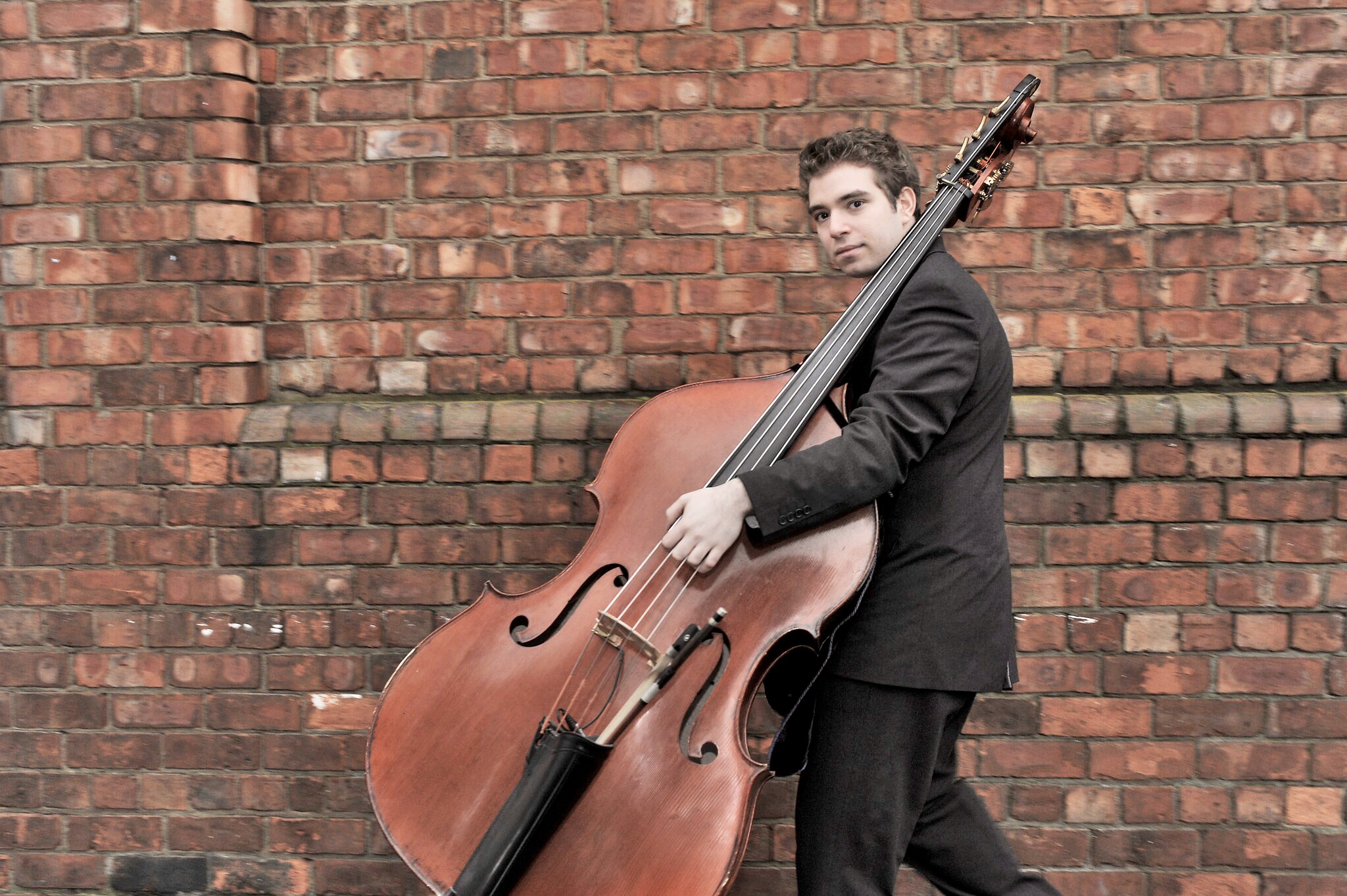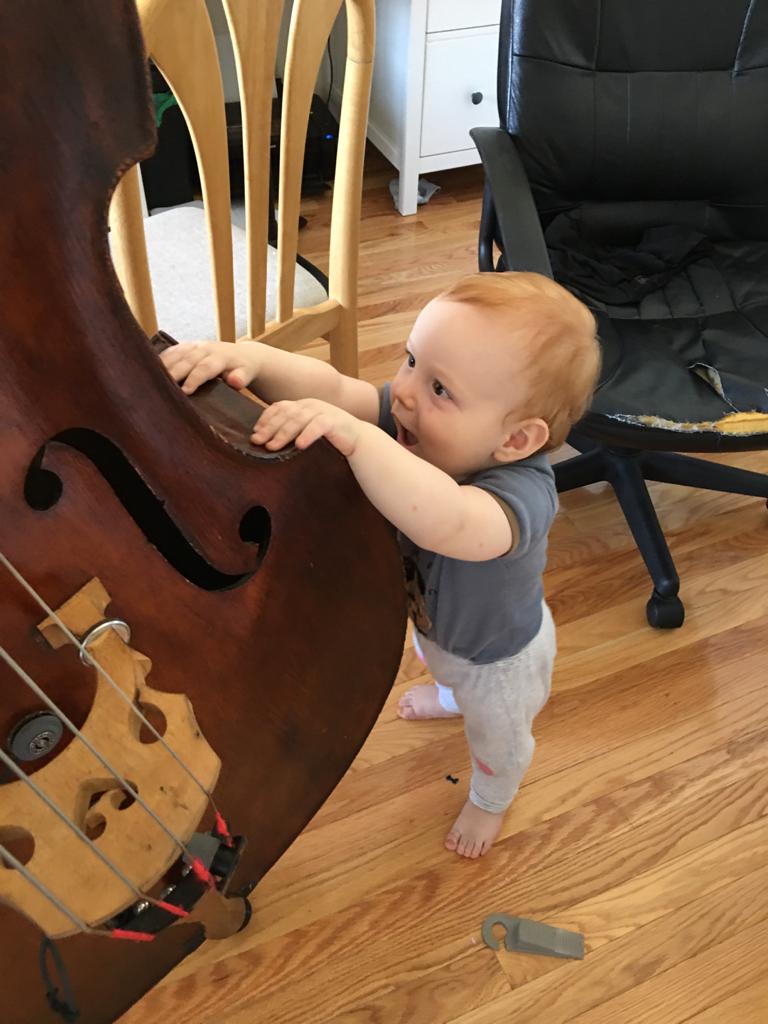Not so long ago among musical instruments the double bass was classed as an ‘endangered species’. Here in Scotland bass players have a great camaraderie -they all seem to know one another and are generally on first name terms. Members of this friendly coterie are invariably given to helping one another out – the borrowing and lending of instruments, stools, and bows is par for the course.
We have a spare room in our home which can variously function as a playroom, a dining room, or a spare bedroom. Latterly, we’ve used it as a practice room for music. Although it’s not a big space we can just about squeeze in a group of amateur musicians and their stands, provided they leave their cases outside. However, the floor space is severely curtailed if extra double basses come to stay.
In the summer months the city of Edinburgh is awash with music festivals – both classical and jazz. Musicians participating in a series of concerts will often tag a Scottish holiday to the end of their work commitments. Since they are already in Scotland, why not take advantage of that to go hill-walking in the Highlands, visit distilleries, or even island-hop in the Hebrides? Their only problem is: What shall I do with my double bass? Light bulb moment: Of course, I’m sure I can leave it with Andrew Robb!
So perchance, when I answer the doorbell, there is a polite chap on the doorstep, toting a large instrument in its padded case. I vaguely recognise him as someone my son has stayed with in London when he travelled down for a gig one time but had nowhere to stay for the night. The polite chap says: I’m really sorry to trouble you but Andy suggested I might leave my bass with you while I travel up north with my girlfriend. I should be back next week. Of course I invariably acquiesce- it would be churlish not to, and I’m aware of needing to return the favour. Besides, it’s good to know that Andrew has such nice friends.
If you look at the image featured for this blog, you’ll see what our practice room looked like after I had answered the doorbell to several more of Andy’s nice friends!



 Jazz bassists stand to play pizzicato, and in continental Europe classical double bass players also play standing up, often draped over their instruments. British players, however are usually seated on stools. The stool has its own problematic issues . For a start it needs to be taken to the music venue along with the instrument – massively inconvenient on public transport. Secondly, players can’t merely perch anywhere – the stool need to be of suitable height for their frame. A petite female player will need a smaller stool than a tall, burly man. Many players also nurse personal preferences – comfort padding, back-rest, easily foldable, etc., especially in their later years.
Jazz bassists stand to play pizzicato, and in continental Europe classical double bass players also play standing up, often draped over their instruments. British players, however are usually seated on stools. The stool has its own problematic issues . For a start it needs to be taken to the music venue along with the instrument – massively inconvenient on public transport. Secondly, players can’t merely perch anywhere – the stool need to be of suitable height for their frame. A petite female player will need a smaller stool than a tall, burly man. Many players also nurse personal preferences – comfort padding, back-rest, easily foldable, etc., especially in their later years.

It is important to emphasise at the outset that it is the role of the Home Office, not of churches, to assess and vet these claims. I arrived in this country myself as a refugee from Iran, following the events of the Revolution of 1979 during which the small Anglican Community experienced much persecution and my brother was murdered. I know that behind every statistic is a human story and I have a sense of the real trauma that many asylum seekers have experienced. Christians are called to follow the example of Jesus who throughout the Bible focuses his love and care on the most vulnerable and marginalised people in society. Churches do this by helping disadvantaged people of all backgrounds – including asylum seekers – to eat, to sleep, to worship, to find shelter and to be connected to the services which can support them.
As a Christian leader I make no apology for our involvement in supporting people who are often deeply vulnerable and traumatised. But churches have no power to circumvent the Government’s duty to vet and approve applications. It is the calling of clergy to baptise and bring people to God. When a candidate who is an asylum seeker is prepared for baptism, the guidance given to clergy includes the need for discernment: “to be ‘wise as serpents and innocent as doves’. Clergy must be confident that those seeking baptism fully understand what it signifies.” Religious ministers from all denominations will occasionally, after careful assessment, provide statements of support to individuals seeking asylum, but it is wrong to think of this as some sort of magic ticket. The notion that a person may be fast-tracked through the asylum system, aided and abetted by the Church is simply inaccurate. Home Office guidance says “ultimately, evidence even from a senior church member is not determinative”. Responsibility to assess the risk to an individual of persecution on the grounds of faith is that of the Home Office.
Christian leaders have worked with officials to improve understanding of faith-based persecution and Christian identity, and we will continue to do so. We have also offered to work with the Government on ensuring returns policies are developed so that they are safe and more likely to be effective in the long-term. We share the former Home Secretary’s concern about the need to “break criminality”, but those who have claimed a link between the abuse of our asylum system and the action of bishops in Parliament are simply wrong. The plight of refugees the world over is a shared responsibility and one we must shoulder together – locally, nationally, globally. We must do so not by demonising those who arrive on our shores, but by recognising our shared humanity and, as Christians would put it, seeing in others the face of Christ.
Dr Guli Francis-Dehqani is the Bishop of Chelmsford